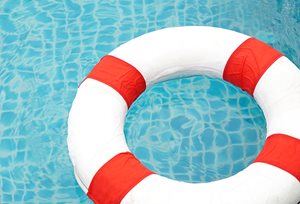Wednesday November 30, 2022
A guide to minimizing HOA pool risks
 It’s no secret that some parts of California can reach scorching temperatures in the summer, while many other parts of the state enjoy pool weather for most of the year. No wonder California boasts the most pools of any state (3 million). And as in many places across the U.S., swimming pools are among the most sought-after community amenity in California.
It’s no secret that some parts of California can reach scorching temperatures in the summer, while many other parts of the state enjoy pool weather for most of the year. No wonder California boasts the most pools of any state (3 million). And as in many places across the U.S., swimming pools are among the most sought-after community amenity in California. While pools provide a great way for HOA residents of all ages to cool off, get exercise, and socialize in the summer heat, they can also present safety risks. You can minimize these risks for residents in your HOA community by employing the following six California HOA pool rules and safety tips.
Key safety tips and guidelines for HOA pools in California
-
Post your HOA pool rules, and don’t be afraid to follow through.
Make it easy for residents to know the rules by posting them at the pool, in your community newsletter, on your resident website, and in your clubhouse. Enforce these rules consistently so residents take them seriously.
Some rules are mandated by state or local laws. For example, California state regulations prohibit pool users and employees from entering the water in a public pool (including an HOA community pool) if they have a communicable disease in an infectious state. This means that even someone with a runny nose or a cough due to a cold should not be allowed in the pool.
Other rules are designed to prevent injuries. These would include forbidding residents from running along the edge of the pool, diving in shallow water, or bringing glass containers to the pool. Your HOA may have its own rules based on the specifics of your community.
-
Enclose your pool properly.
A proper enclosure prevents children from wandering into your pool area and keeps out trespassers. In both cases, it can help avoid accidents.
Codes for pool enclosures can vary among different municipalities, so be sure that you know your local laws, especially if they go farther than California state law. State law requires that all public pools have self-closing and self-latching gates or doors. Additionally, any enclosure built (or rebuilt) since July 1, 1994, must have at least one egress that does not require a key. That gate or door must be clearly marked “emergency exit” in letters that are at least four inches high. Your HOA management company can inform you of the laws in your area and guide you in complying with them.
-
Make sure someone is keeping an eye on the kids.
Your HOA should never allow children to use the pool unsupervised. If you don’t already have a certified lifeguard, you may want to ask your community manager to help you hire one. Large communities or pools with busy hours may even require multiple lifeguards.
If the staff at your community doesn’t include a lifeguard, enforce a policy that requires children to be accompanied by a parent or guardian. This policy should be included in the list of rules you post.
-
Provide emergency training and equipment.
Regardless of whether or not your community has a lifeguard, it’s important to have as many people as possible trained in first aid, CPR, and other emergency response techniques. You can increase the number by holding training classes for staff and residents. This is another area in which a property management company can help.
In terms of emergency equipment, California requires that you have a life ring with at least a 17-inch diameter. It must be attached to a throw rope that is at least the width of your pool and is a minimum of 3/16 inch in diameter. You must also have a rescue pole that is at least 12 feet long (shorter if it is just for a spa). Additionally, a pool where there is a lifeguard must have a Red Cross 10-person industrial first-aid kit (or its equivalent), a functioning phone, and a backboard and head stabilizer.
Learn more about community swimming pool safety by visiting the Red Cross water safety and swim safety websites.
-
Encourage (or provide) swim lessons.
One of the best ways for residents to be safe around a swimming pool is by knowing how to swim. Unfortunately, 65 percent of Americans can’t swim. Sponsoring swim lessons is a great way to save lives within your community and at the same time build camaraderie.
-
Keep the community pool well maintained.
California law specifies that public pools maintain a specific level of chlorine, and other chemicals, as well as a certain pH balance. Be sure that the people responsible for this know what they are doing and are familiar with the law. Also keep equipment well maintained off season to minimize maintenance closures in the summer.